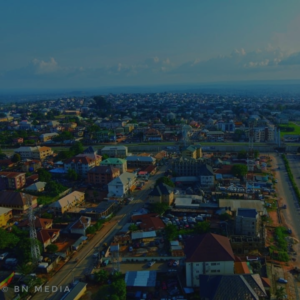Welcome to the Little Big City Hub – your ultimate destination for the latest updates on all things commercial, entertainment, people, and places in the vibrant heart of Awka. Nestled in the heart of Nigeria, Awka is a little big city that packs a punch when it comes to events and experiences. Join us as we unveil the bustling commercial ventures that fuel its economy, the captivating entertainment scenes that light up its nights, the remarkable individuals who give it life, and the unique places that shape its identity. Whether you’re a local looking to dive deeper into your city or a curious explorer eager to uncover hidden gems, our blog is your front-row seat to the dynamic tapestry of Awka – the little big city with a big personality
Background
Living in Awka can sometimes be seen as a bit not lively, especially if you study or work in the capital territory of Anambra State. People often say, “Nothing is happening in Awka” when they are disconnected from the city’s pulse. However, proper research would reveal that Awka contributes significantly to Nigeria’s entertainment and industry, making up around 30% of the Southeast’s contributions.

Despite being called the “little big city,” Awka is made up of 33 villages and serves as the administrative, economic, and cultural center of Anambra State. It is located in southeastern Nigeria, in the tropical rainforest zone, on the eastern bank of the Niger River. Approximately 400 kilometers southeast of Abuja and 150 kilometers northwest of Enugu, Awka is situated in a strategic position.
According to the National Population Commission of Nigeria, the population of Awka was estimated to be around 301,657 in 2016. The city attracts a significant number of people each year, including over 11,000 students admitted to the prestigious Nnamdi Azikiwe University (Unizik). Many families also relocate to Awka to be closer to their children studying at the university. Additionally, the city hosts other tertiary institutions, as well as numerous secondary and primary schools.
Awka is a melting pot of diverse individuals from different walks of life. It has attracted various professionals, including transporters, labor workers, civil servants, and police officers who have been transferred to the area. The presence of the biggest market in West Africa, coupled with Eke Awka Market within the city, contributes to its commercial activities.
Living in Awka is a unique experience, as the city boasts a rich cultural heritage. Its people belong to the Igbo ethnic group, known for their distinct traditions, festivals, and art forms. Notable landmarks in Awka include Eke Awka Market, the statue of Queen Amina of Zaria, Dike Park, and the Governor’s Lodge.
Historically, Awka has deep roots in Igbo civilization. It was part of the Nri Kingdom, which played a significant role in the region’s pre-colonial era. The Ifiteana people were the earliest settlers in Awka, known for their expertise in farming, hunting, and ironworking. The town gained prominence for its skilled blacksmiths who crafted agricultural tools, ceremonial items, and weapons. The Agbala oracle, which inspired Chinua Achebe’s novel “Things Fall Apart,” was also a notable aspect of Awka’s per-colonial history.
In modern times, Awka has undergone rapid urbanization and witnessed substantial infrastructural development. It has emerged as a commercial and administrative hub, attracting businesses, educational institutions, and government offices. Nnamdi Azikiwe University, established in 1991, has played a crucial role in shaping the city’s educational landscape.
Overall, Awka is a beautiful city with a rich cultural heritage, contributing significantly to the socioeconomic fabric of Nigeria
Leave a Reply
You must be logged in to post a comment.